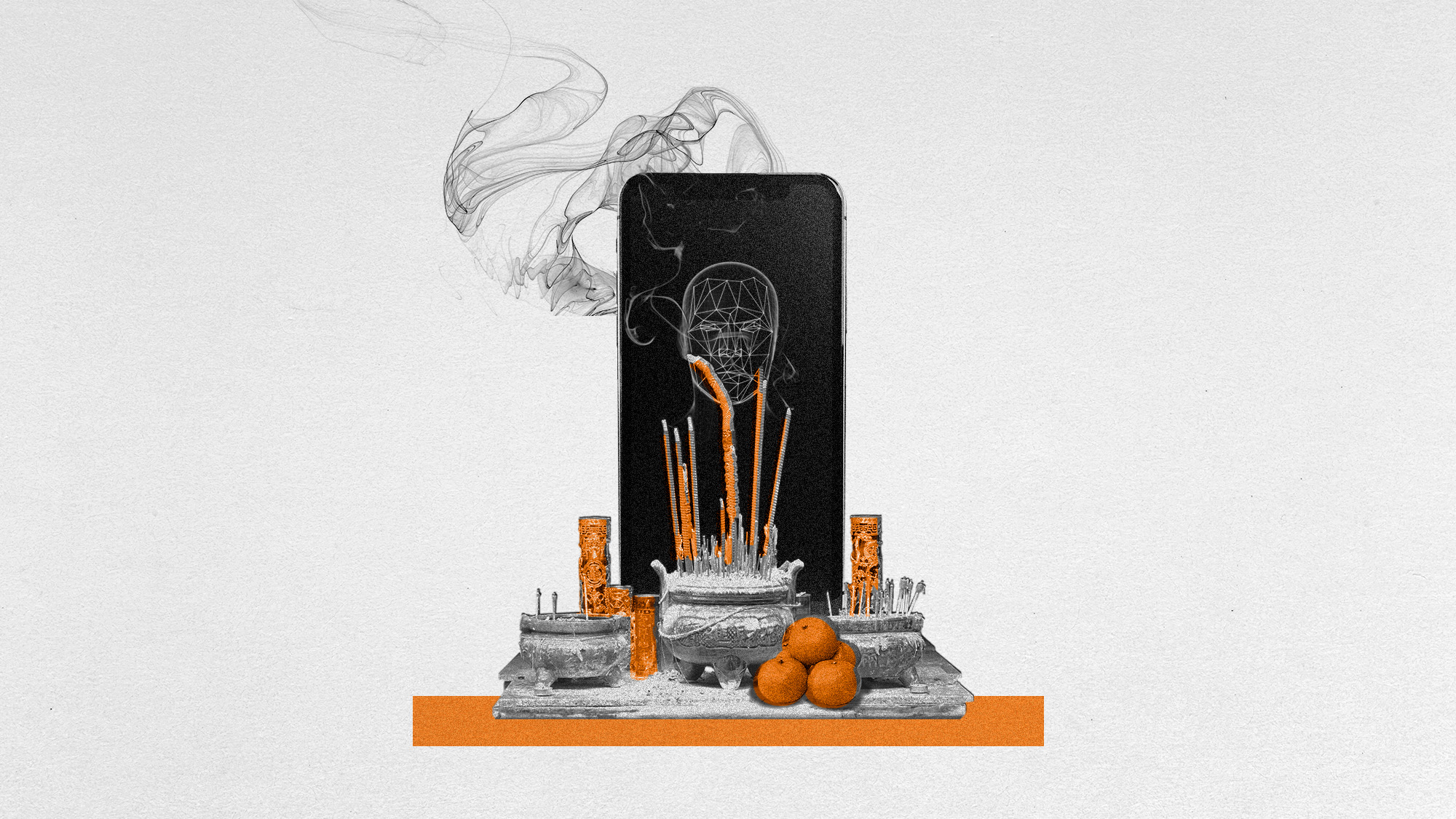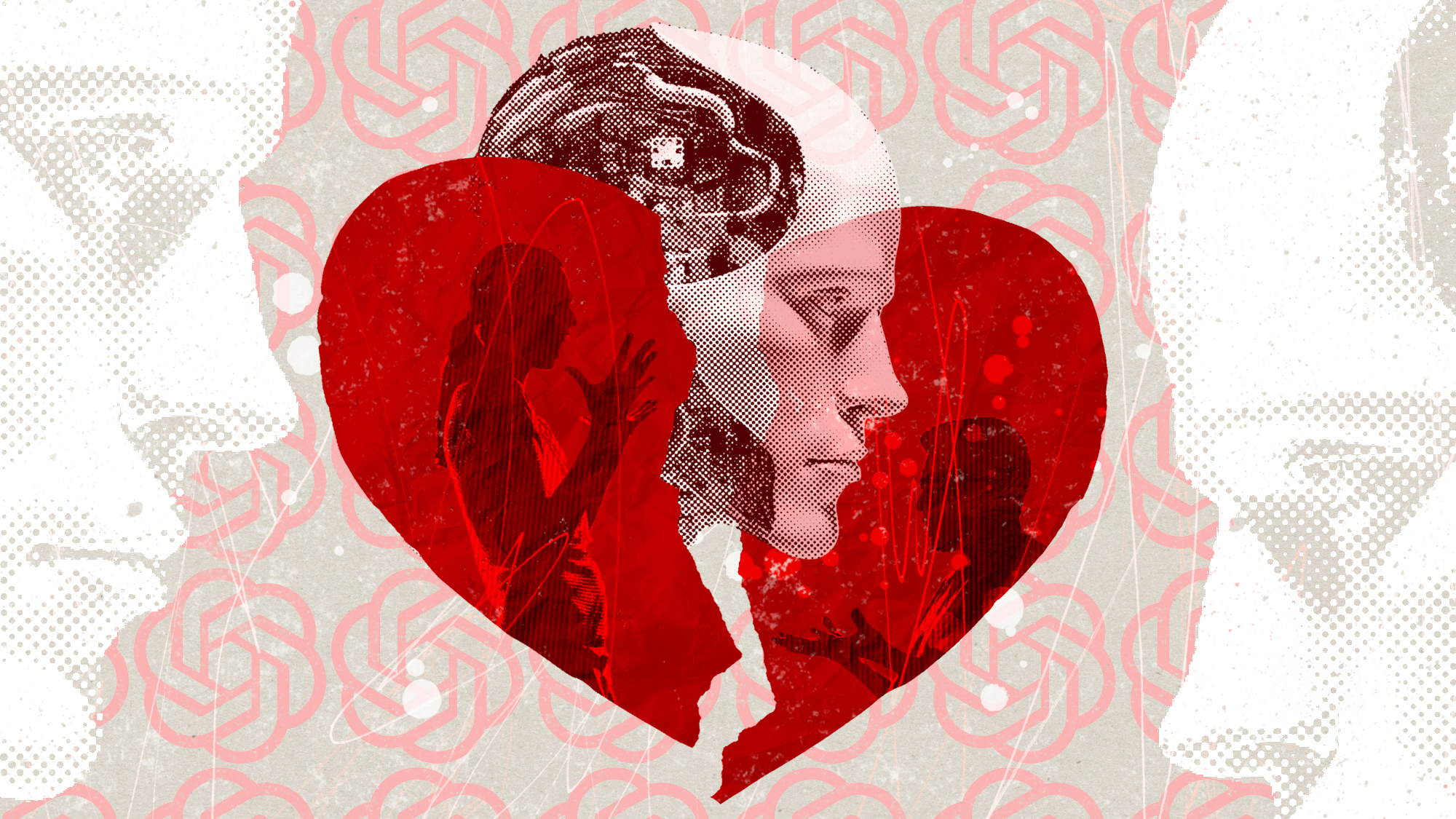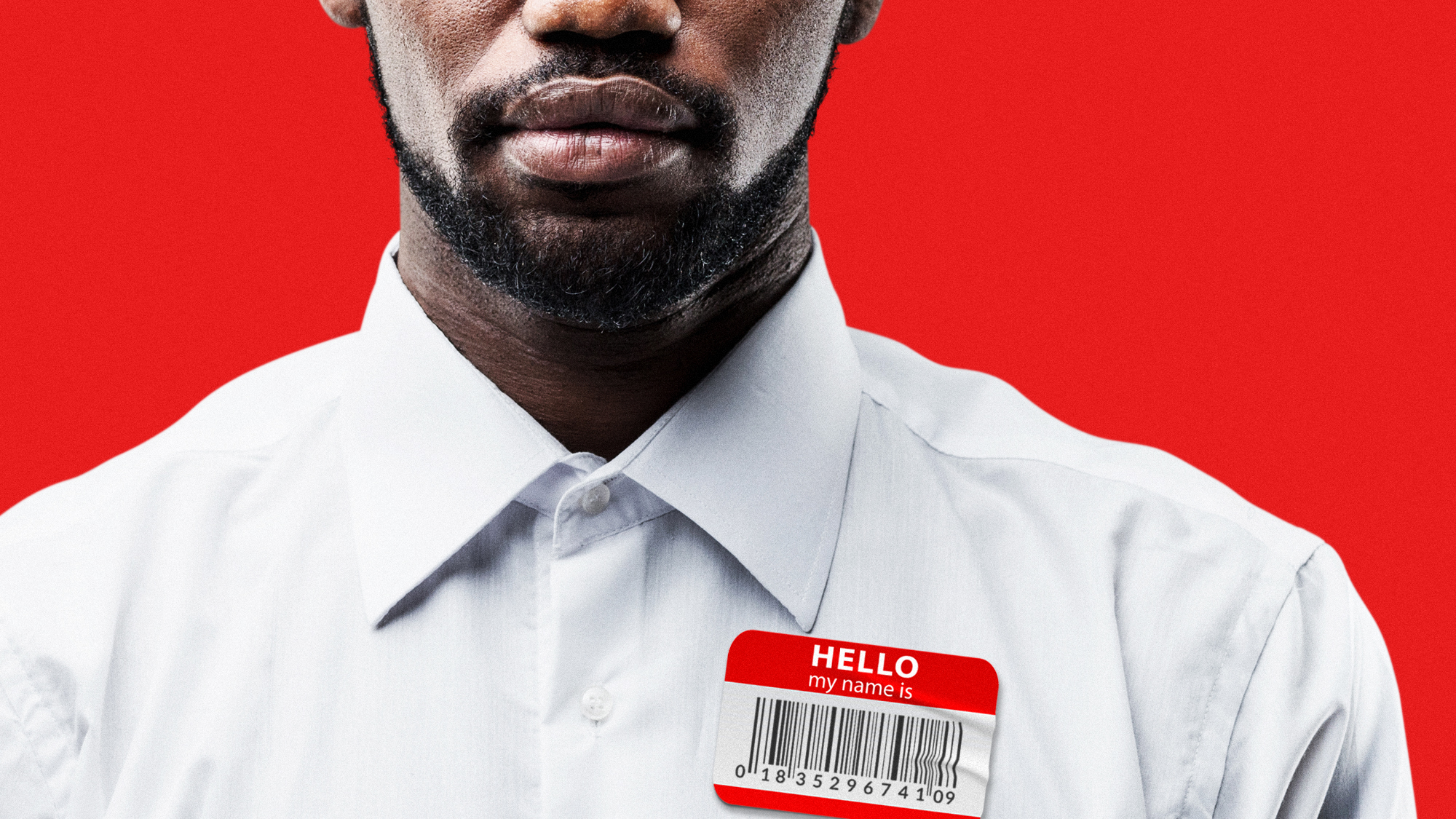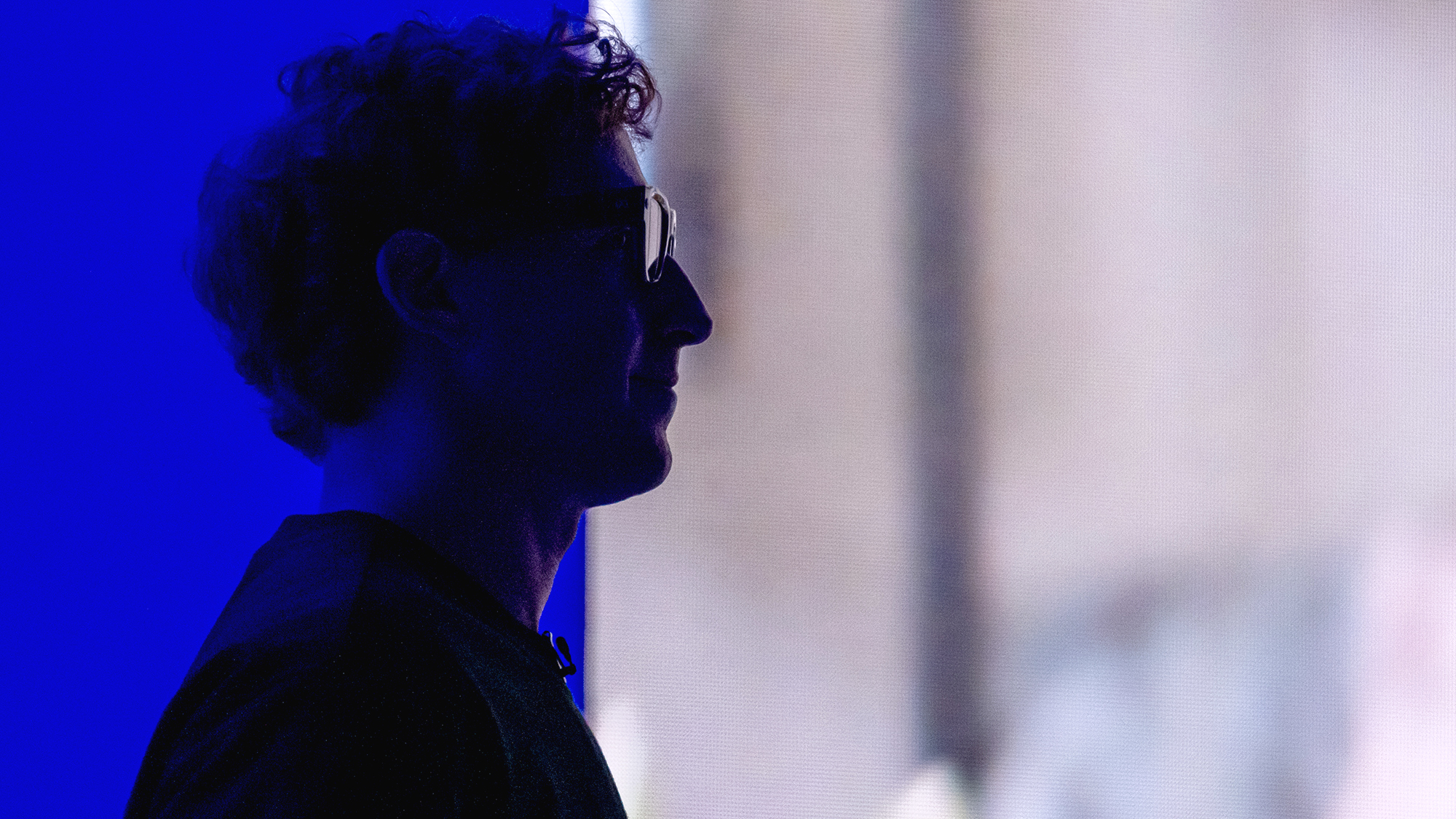Why deepfakes of dead loved ones are big business in China
AI-generated avatars of deceased 'builds on China's long cultural history of communicating with the dead'

A free daily email with the biggest news stories of the day – and the best features from TheWeek.com
You are now subscribed
Your newsletter sign-up was successful
"Last year was tough for everyone," said a Chinese AI boss as he addressed a recent annual general meeting, and 2023 had indeed been tough for him. He died.
A growing number of people in China are buying AI-generated avatars of loved ones to help process their grief, raising a number of ethical and legal questions.
What is it?
SenseTime founder Tang Xiao'ou announced the service from beyond the grave as a digital clone, which had been trained by the company's engineers using a large language model machine learning programme trained on video and audio clips of Tang.
The Week
Escape your echo chamber. Get the facts behind the news, plus analysis from multiple perspectives.

Sign up for The Week's Free Newsletters
From our morning news briefing to a weekly Good News Newsletter, get the best of The Week delivered directly to your inbox.
From our morning news briefing to a weekly Good News Newsletter, get the best of The Week delivered directly to your inbox.
A "new way of remembering, and reviving" beloved relatives is "being born", said The Guardian. For only 20 yuan (£2.20) Chinese people can "create a moving digital avatar of their loved one".
The technology "isn't perfect", said MIT Technology Review, because "avatars can still be stiff and robotic", but it's "maturing, and more tools are becoming available through more companies".
When the avatar "looks increasingly lifelike" and "gives fewer out-of-character answers", it's "easier for users to treat it as their deceased family member".
The Taiwanese singer Bao Xiaobai used AI to "revive" his 22-year-old daughter, who died in 2022. Shine reported that he spent more than a year experimenting with the technology before creating a video of his daughter singing happy birthday to her mother. He reflected that AI is "a tool for expressing yearning, a way to express missing someone".
A free daily email with the biggest news stories of the day – and the best features from TheWeek.com
It's already big business. The market for "digital humans" was worth 12 billion yuan (£1.3 billion) in 2022 and is expected to quadruple by 2025. This has led to some moral quandaries.
Social media users deployed old footage of the singer Qiao Renliang, who died by suicide in 2016, to create new content starring him. In one video, the AI clone of Qiao says: "Actually, I never really left."
But Qiao's parents said the video was created without the family's consent and lawyers say such content should be banned if it causes "mental pain" to the relatives of the deceased.
Others have questioned whether "interacting with AI replicas of the dead" is "a healthy way to process grief", said MIT Technology Review. "It's not entirely clear what the legal and ethical implications of this technology may be."
There are also question marks over one company that offers deepfaked video calls, usually to an elderly family member who may not know that the relative has died and whose family has "arranged the conversation as a ruse". It's "pretty common" for Chinese families to tell "necessary" lies to avoid overwhelming seniors, as portrayed in a movie "The Farewell".
Cultural traditions
The market is "particularly strong in China", said MIT Technology Review, with "at least half a dozen companies" now offering these technologies and thousands of people already paying for them.
This is because the business "builds on China's long cultural history of communicating with the dead". In Chinese homes, it's usual to put up a portrait of a deceased relative for a few years after their death.
Avatars of lost loved ones are "not much different from a traditional portrait, except that it's interactive", said Zhang Zewei, founder of a Shanghai-based company Super Brain.
During the annual Qingming festival in April, "Chinese people sweep the tombs of their ancestors, burn joss sticks and fake paper money, and tell them what has happened in the past year".
This festival "provides a particular opportunity for this kind of technology", said The Guardian, and China's "digital natives are likely to experiment with digital afterlives faster than living policymakers can regulate them".
Chas Newkey-Burden has been part of The Week Digital team for more than a decade and a journalist for 25 years, starting out on the irreverent football weekly 90 Minutes, before moving to lifestyle magazines Loaded and Attitude. He was a columnist for The Big Issue and landed a world exclusive with David Beckham that became the weekly magazine’s bestselling issue. He now writes regularly for The Guardian, The Telegraph, The Independent, Metro, FourFourTwo and the i new site. He is also the author of a number of non-fiction books.
-
 6 exquisite homes with vast acreage
6 exquisite homes with vast acreageFeature Featuring an off-the-grid contemporary home in New Mexico and lakefront farmhouse in Massachusetts
-
 Film reviews: ‘Wuthering Heights,’ ‘Good Luck, Have Fun, Don’t Die,’ and ‘Sirat’
Film reviews: ‘Wuthering Heights,’ ‘Good Luck, Have Fun, Don’t Die,’ and ‘Sirat’Feature An inconvenient love torments a would-be couple, a gonzo time traveler seeks to save humanity from AI, and a father’s desperate search goes deeply sideways
-
 Political cartoons for February 16
Political cartoons for February 16Cartoons Monday’s political cartoons include President's Day, a valentine from the Epstein files, and more
-
 The real tragedy that inspired ‘Hamlet,’ the life of a pingpong prodigy and the third ‘Avatar’ adventure in December movies
The real tragedy that inspired ‘Hamlet,’ the life of a pingpong prodigy and the third ‘Avatar’ adventure in December moviesThe Week Recommends This month’s new releases include ‘Hamnet,’ ‘Marty Supreme’ and ‘Avatar: Fire and Ash’
-
 How AI chatbots are ending marriages
How AI chatbots are ending marriagesUnder The Radar When one partner forms an intimate bond with AI it can all end in tears
-
 The most downloaded country song in the US is AI-generated
The most downloaded country song in the US is AI-generatedUnder the radar Both the song and artist appear to be entirely the creation of artificial intelligence
-
 Disney bets big on AI, but not everyone sees a winner
Disney bets big on AI, but not everyone sees a winnerTalking Points The company will allow users to create their own AI content on Disney+
-
 China’s burgeoning coffee culture
China’s burgeoning coffee cultureUnder The Radar Local chains are thriving as young middle-class consumers turn away from tea
-
 One great cookbook: ‘The Woks of Life’
One great cookbook: ‘The Woks of Life’The Week Recommends A family’s opinionated, reliable take on all kinds of Chinese cooking
-
 How digital ID cards work around the world
How digital ID cards work around the worldThe Explainer Many countries use electronic ID to streamline access to services despite concern by civil rights groups they ‘shift the balance of power towards the state’
-
 Smart glasses and unlocking ‘superintelligence’
Smart glasses and unlocking ‘superintelligence’The Explainer Meta unveiled a new model of AI smart glasses this week, with some features appearing ‘unfinished’ at a less-than-perfect launch